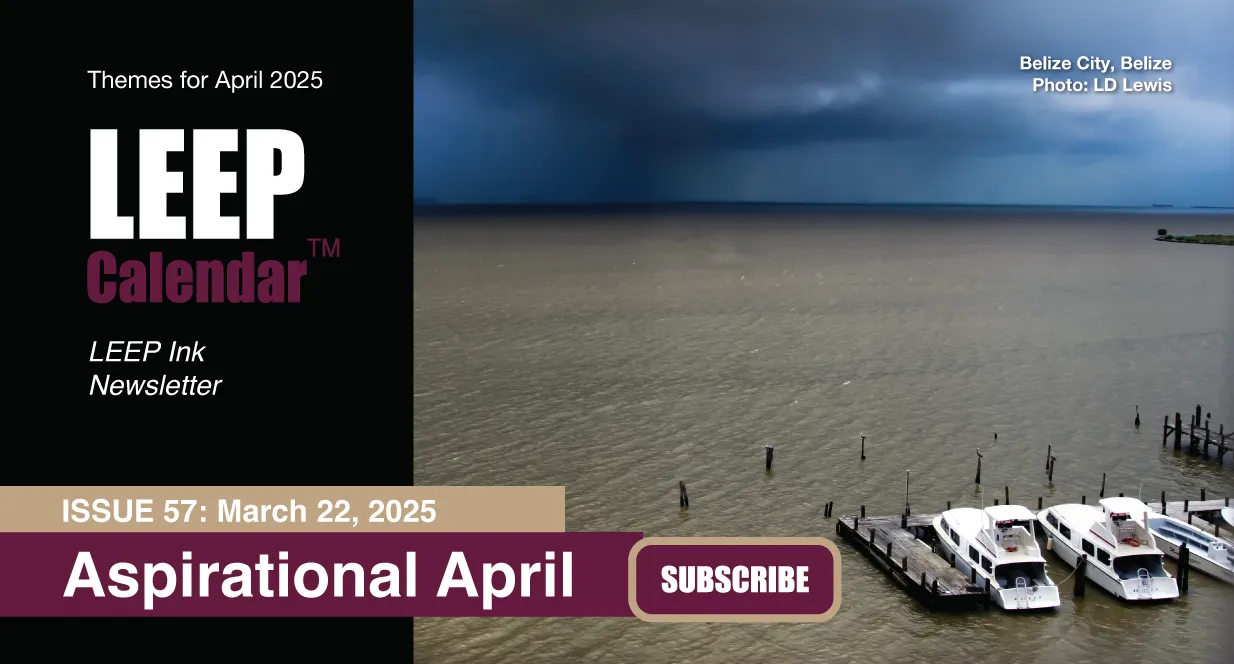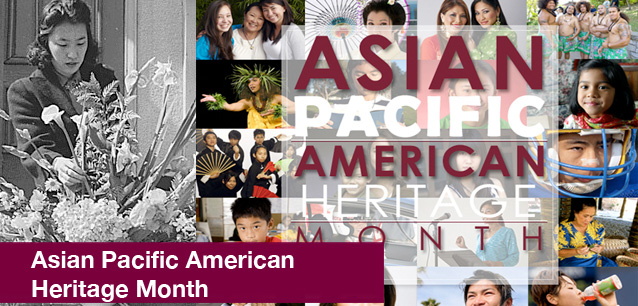 AD
AD
Today is: July 05
Scroll to explore events active on this date.
Additional Events on LEEP
LEEP INK FEATURES

May Blooms: Events in May 2025
Along with October, May is one of the most densely packed months of the year. It's before the summer humidity and the last whole month of the school year. The weather is warming in t...

Sweet June 2025
The solstice on the 20th marks the onset of summer (Northern Hemisphere) or winter (Southern Hemisphere). Many people, particularly in Europe, North America and Asia, will be embarking o...

Events in April 2025
Spring has sprung in the north, and the first hints of Autumn are on the horizon in the south. April is the month spring (or fall) gets underway, and it is filled with religious celebrations, including the Mu...
About Asian Pacific American Heritage Month
Lifestyle , United States
Ends: May 31, 2025
DESCRIPTION:
On October 14, 2009, President Obama signed an executive order that restored the White House Initiative and President's Advisory Commission on Asian Americans and Pacific Islanders to address issues concerning the Asian American and Pacific Islander (AAPI) community. Asian Pacific American Heritage Month was first declared by President Roosevelt in 1942 following the attack on Pearl Harbor on December 7, 1941.
The following is an excerpt from his speech:
"… America's AAPI communities, we're talking about the industry and entrepreneurship of people who've helped build this nation for centuries: from the early days, as laborers on our railroads and farmers tilling our land, to today, as leaders in every sector of American life, from business to science to academia, law and more.
We're talking about the creative energies of musicians like the singers Penn Masala -- we appreciate them -- who performed today. And we're talking about the competitive spirit of athletes like Wat Misaka, who played for the New York Knicks in 1947—the first non-white player in the NBA -- and who served in the U.S. Army during World War II. Mr. Misaka is here as well today and—where's Mr. Misaka? There he is. Thank you so much. (Applause.)
We're talking about the public service of leaders like Secretaries Gary Locke, Steven Chu, Eric Shinseki, and the folks on stage with me today. And we're talking about the courage, patriotism, and sacrifice of heroes like the 442nd Regimental Combat Team members who served in World War II, including Terry Shima. Please give him a big round of applause. (Applause.) Mr. Shima is the Executive Director of the Japanese American Veterans Association, and we are grateful that he took the time to be here today.
Some of their families had been interned, and some interned themselves. But they still insisted on fighting for America and went on to become the most highly decorated unit of their size in history.
And one regiment member, Private Jake Kirihara, whose parents were held in a camp here in America while he fought overseas, later said: '… even though this wrong was done to us, there was never any question whether America was my country. If America needed me to help, I'll do it.'
So this proud tradition of service continues today in Iraq and Afghanistan and worldwide, carried on by folks like Tammy Duckworth, my dear friend who's here today. (Applause.) Tammy is a decorated member of our National Guard, a passionate advocate for our wounded warriors, and is now serving as our Assistant Secretary of Public and Intergovernmental Affairs at the Veterans Affairs Department. I'm proud to have her on board and pleased she could join us today.
And on a personal note, when I talk about America's AAPI communities, I'm talking about my own family: my sister, Maya; my brother-in-law, Konrad; my beautiful nieces, Suhaila and Savita; and the folks I grew up with in Indonesia, and in Honolulu, as part of the Hawaiian Ohana, or family.
Our AAPI communities have roots that span the globe, but they embody a rich diversity and a story of striving and success that are uniquely American.
But focusing on all of these achievements doesn't tell the whole story, and that's part of why we're here. It's tempting, given the strengths of the Asian American and Pacific Islander communities, for us to buy into the myth of the 'model minority' and to overlook the very real challenges that certain Asian American and Pacific Islander communities are facing: from health disparities like higher rates of diabetes and Hepatitis B; to educational disparities that still exist in some communities—high dropout rates, low college enrollment rates; to economic disparities—higher rates of poverty in some communities, and barriers to employment and workplace advancement in others.
Some Asian American and Pacific Islanders, particularly new Americans and refugees, still face language barriers. Others have been victims of unthinkable hate crimes, particularly in the months after September 11 -- crimes driven by ignorance and prejudice that affronts everything this nation stands for.
And then there are the disparities we don't even know about because our data collection methods still aren't up to par. Too often, Asian American and Pacific Islanders are all lumped into one category, so we don't have accurate numbers reflecting the challenges of each community. Smaller communities, in particular, can get lost, their needs and concerns buried in a spreadsheet.
And that's why I'm signing this executive order today, reestablishing the advisory commission and White House initiative created by President Clinton 10 years ago. Because when any of our citizens—(applause)—when any of our citizens are unable to fulfill their potential due to factors that have nothing to do with their talent, character, or work ethic, then I believe there's a role for our government to play. Not to guarantee anybody's success or to solve everybody's problems, but to ensure that we're living up to our nation's ideals, to ensure that we can each pursue our version of happiness and that we continue to be a nation where all things are still possible for all people. That's the impact that our government can have…."
President Barak Obama, October 14, 2009
VIDEOS
SUPPORTING DOCUMENTS
ADDITIONAL IMAGES
Currently, this event does not have supporting images.
Where would you like to go now?
 AD
AD



/footer-logo.svg)
